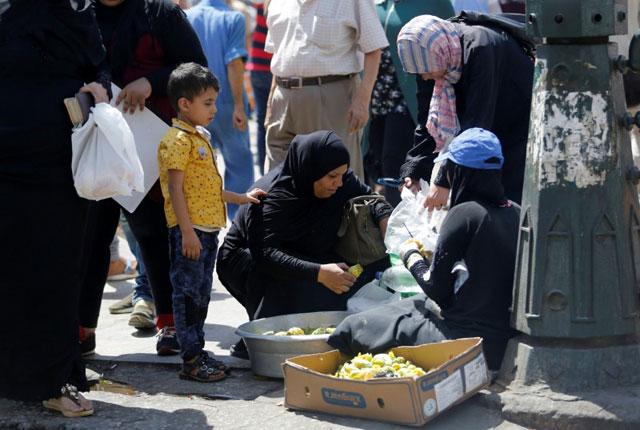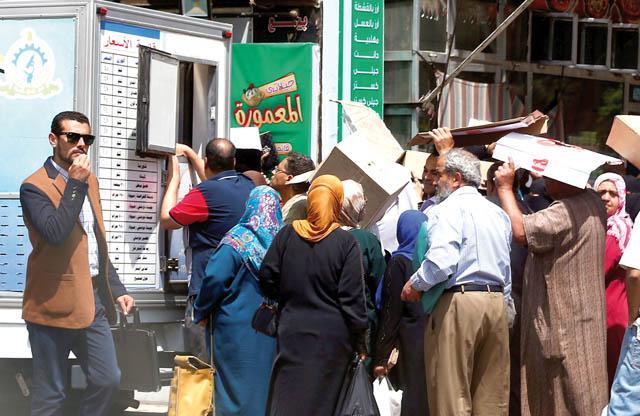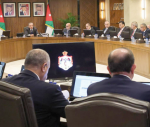You are here
Egypt’s heady inflation drops as election season approaches
By Reuters - Jan 10,2018 - Last updated at Jan 10,2018

Egyptians buy fruits from street vendor in the central Cairo (Reuters file photo)
CAIRO — Egypt’s annual inflation rates dropped in December to their lowest levels since the country floated its pound currency in November 2016, sending prices shooting up.
Bringing down inflation is key for President Abdel Fattah Al Sisi who has yet to announce his intention to run for a March election, but is expected to win himself another term.
Urban consumer price inflation eased to 21.9 per cent in December year-on-year from 26 per cent in November, with its month-on-month rate falling to -0.2 per cent, the first time prices decreased since December 2015, according to official data.
Core inflation, which strips out volatile items such as food, fell to 19.86 per cent in December from 25.53 per cent the previous month.
“The drop is positive and supports our expectations of lower inflation ahead, towards our 18 per cent forecast in the first quarter of 2018,” said Hany Farahat, senior economist at CI Capital.
Inflation reached a record high of 35 per cent in July after energy subsidies were cut in line with reforms agreed with the International Monetary Fund (IMF) for a $12 billion loan, but has gradually eased since then.
Egypt’s finance minister said on Wednesday he expected the rate to fall below 20 per cent next month and to 10-12 per cent during 2018 before falling below 10 per cent in 2019.
Egypt’s central bank has raised key interest rates by 700 basis points since November 2016 in an attempt to ease soaring inflation.
Economists expect the bank to start cutting rates in coming months as inflationary pressure eases. The central bank’s next monetary policy meeting is on February 15.
“We expect a 200 basis points cut in interest rates could occur at the MPC meeting on February 15,” said Reham El Desoki, senior economist at Arqaam Capital.
Desoki expected a hold in the March and May meetings and a hike of 200 basis points in June following further cuts in energy subsidies.
Egypt hiked fuel prices by up to 50 per cent in June and electricity prices by up to 42 per cent in July in an effort to tighten its spending as part of the three-year IMF deal. Another wave of energy cuts is expected this year as per the recommendation of the IMF.
Sisi has to balance between pushing with economic reforms to revive an economy hit hard by political turmoil and maintaining support to win the upcoming election.
Related Articles
CAIRO — Egypt’s inflation rose to a three-decade high in April, piling pressure on the government to keep a lid on prices as it embarks on p
CAIRO — Egypt’s inflation rate dropped to the lowest level in nearly a decade last month, official figures showed on Saturday, as chea
CAIRO — Annual consumer price inflation in Egypt's cities soared to a second straight eight-year high in December, hitting 23.3 per cent on
















